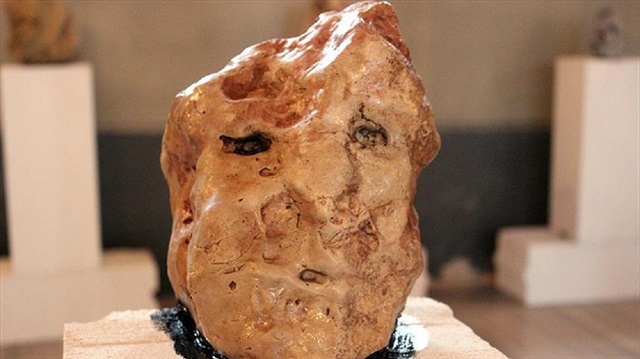
Ahmet Aslan's collection of stones that look like animals, humans goes on display in museum
Postage stamps, old coins or football cards are some of the more usual items gathered by those with an interest in building collections.
However, a shepherd in Turkey has developed his own niche collection that has now gone on display in a museum -- stones that resemble humans and animals.
Ahmet Aslan, 48, began collecting life-like stones eight years ago. Over the years, he has gathered more than 150 specimens while working as a shepherd across Turkey.
He has now established a museum in a disused church in the northwestern province of Edirne to display his unusual collection.
Aslan’s passion for stones was reinforced when he read Walt Disney’s reply when asked how he came up with the idea for Disneyland.
“Everything began with a mouse,” the U.S. animator responded.
“That answer for me turned into the ‘everything began with a stone’ idea,” Aslan told Anadolu Agency. “It grew and over time it has become the idea of this museum. After I found the first stone, I tried to find their relatives and friends.”
Although not accredited by the Culture Ministry, his Human Stones Museum has the backing of the municipality of Uzunkopru, a town appropriately named for its stone bridge.
Aslan launched the project after contacting Uzunkopru Mayor Enis Isbilen and established the museum in an old church converted into a cultural center.
One of his most treasured stones is one that bears a passing likeness to U.S. President Donald Trump.
He was so delighted with the hefty find that he carried it for 16 kilometers (10 miles) to join his collection.
Tokyo’s Hall of Curious Rocks has also provided inspiration for Aslan, originally from Sanliurfa in southeast Turkey. The Japanese attraction opened in 2016 and has more than 1,700 display items.
“We will improve this museum even further,” Aslan, who now works as the collection’s curator, said. “Stones will be my job.”
By 2023, the centenary of the Turkish Republic, he hopes to open the world’s biggest “human stones” museum.
According to Isbilen, peoples’ fascination with the display is that the stones are not fashioned by human hand. “These are stone formed by the wind, the water, heat and cold,” he said.
Visitor Gurkan Top described the display as “very interesting”.


